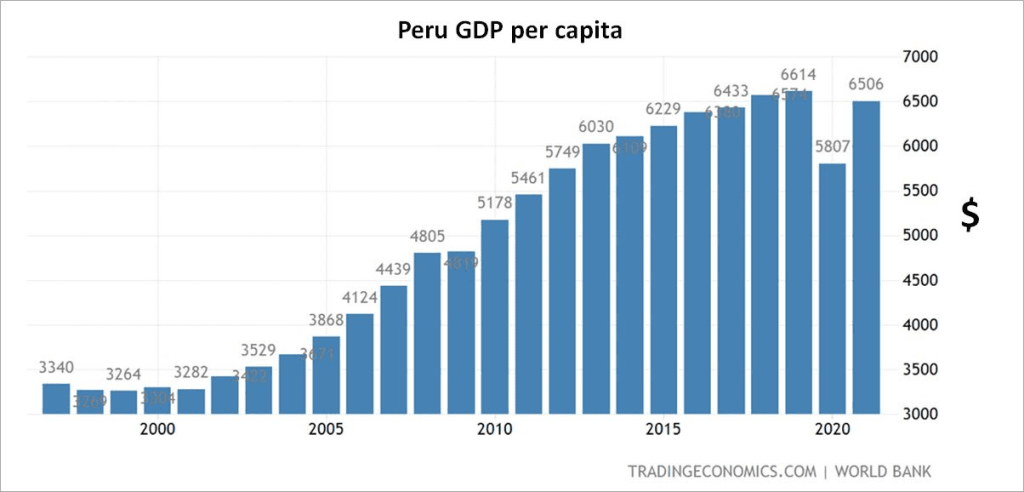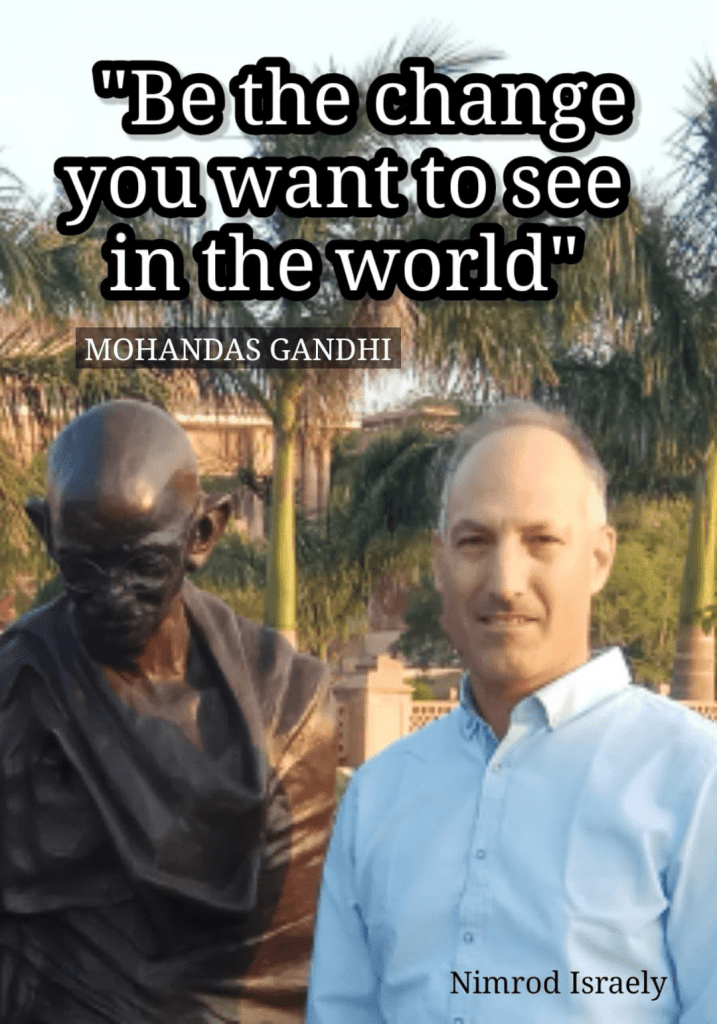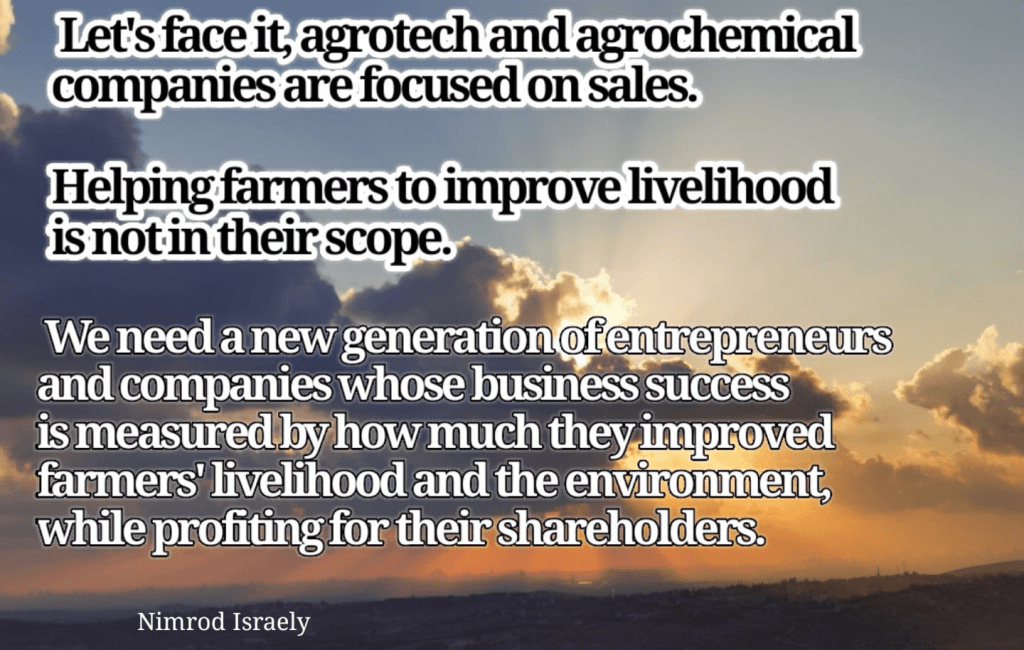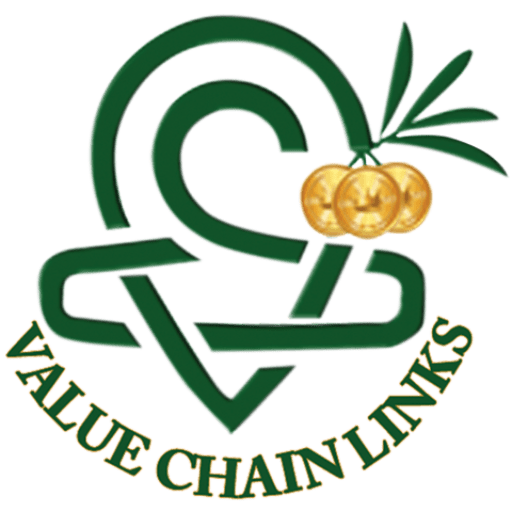
| HOW CAN SELF-PROPHECY CHANGE NATIONAL ECONOMIES AND THE WORLD? |
| “Whatever we do, we convince ourselves we are right.” |
| According to the UN, there are 193 countries in the world, out of which only 39 to 66 are considered developed economies (the number depends on the measurement method).It means that 127 to 154 countries are considered non-developed economies, i.e., nominal GDP per capita of less than $ 20,000 (similar to the US development level in 1960. Wikipedia) |
| Source: World Bank. |
Unlike the urban population, agrarian economies’ rural population relies mainly on agriculture for their livelihood.
In such economies, agriculture is often synonymous with poverty, as 65% of the poor depend on agriculture (source).
It goes without saying that when we decrease poverty, i.e., increase prosperity (personal and national), we improve other related indicators of the 17 UN SDGs.
THE THREE APPROACHES AND FUTURES
The relationship between farmers and their country’s national economic state is tightly coupled and unambiguous; poor farmers indicate the country’s poor economic condition and vice versa.
It is sad to see how the agro sector is often abused and neglected in agrarian economies as if it were not an essential part of the national economy.
You may ask, “WHY do farmers and the agro sector receive such poor treatment?”
When we understand HOW people view the agro sector, we can get an answer to WHY they treat it this shameful way.
Unfortunately, in the eyes and minds of many, “Agriculture” is automatically translated into “the agricultural problem.”
Many, particularly in agrarian economies, don’t view Agriculture as a Business, Industry, or Opportunity but rather as a significant hurdle on the path to a national and personal better future.
When people and LEADERS view the agro sector not as an asset but as A Problem, it is no wonder they mistreat or abuse it.
In agrarian economies, we identify three common attitudes towards agriculture –
1) Toxic – the agro sector is “broken” beyond repair. Maybe in hundreds of years, something will change for the better. Now, we have no interest in having any part in it.
2) Crisis management – the agro sector is in an ongoing, never-ending crisis. We can’t fix it and can’t improve it, so the least we can do is not let it deteriorate more than it already is.
Let’s let international organizations, donors, and NGOs take care of the sector and hope they keep the sector “silent” and “under control” after all, farmers are used to being poor.
3) Gold mind (when well-managed) – the agricultural sector is a hidden treasure that requires BIG changes and adjustments to transform from a national burden to a national treasure.
It can be profitable to investors and business people, a source of pride, and an asset to the national economy.
An excellent example of this concept is Peru and the economic-agricultural revolution that it has gone through in recent decades. But we have no idea how to do it!


To which group do you / your government belong?
RESOURCE MANAGEMENT
Anyone involved in the agro sector in the non-developed economies knows well the general attitude of disbelief and trust to promises of a coming change.
I am too well aware of it, and since my resources are limited, I decided to dedicate them to those who are ready to do and not only talk. As the Americans say, “You put your money (work and other resources) where your mouth is.”
I don’t try to convince people; instead, I am ready to support, be part of, and commit to being active in the frame of projects, organizations, and companies that believe and act in light of a Big Vision; e.g., Dream Valley, Biofeed, and IBMA Conference.
For those, like me, who dream of a change and are ready to commit but are afraid that nothing would change, for there are so few of us, I say the following.
There is never a need for the support and cooperation of 100% of those involved; not even 70%, 50%, 30%, or 10% are required.
If you believe, have the inner strength and confidence, and are ready to act without waiting for others, then to bring a change, you only need one person, YOU!
Think of it, if YOU don’t believe and act in light of YOUR vision, why should others? If you do, others will follow.
In every industry and radical change, there was never more than 0.01% of the population that led and energized the change.
Go, do, lead, don’t worry about the rest; they will follow, as sheep follow the shepherd.
HISTORY REPEATS ITSELF
The Wright brothers managed to be the first to fly an airplane, not thanks to their large numbers or enormous wealth, but because they believed, were dedicated, and acted better than the others. Thank you, Wright brothers, for not waiting for others or giving up.
Edison, in his search for the lamp, was restless, acted (and failed 10K times) until completing his life mission. Thank you, Edison, for not waiting for others or giving up.
For the same reason, leaders like Mahatma Gandhi, Martin Luther King, Nelson Mandela, and J.F. Kennedy brought about historical changes where others failed. They believed, had faith, and acted, waiting for no one to bring about the change they envisioned. Thank you, admired leaders, for not waiting for others or giving up.
I can share my experience, where multi-billion $ companies and inter/national institutes tried to develop eco-friendly solutions to fruit flies but failed.
Biofeed, with its small dedicated team, managed to develop such breakthrough solutions not because of having more resources.
Biofeed had the edge thanks to its deep belief and knowing it was possible. Biofeed’s team was dedicated and acted until completing the mission. Thank you, Biofeed team, for not waiting for others or giving up.

People who change the world have no color, age, religion, gender, or other common characteristics. However, each has a clear, bright vision, dedication, belief in the way, and readiness to act and do what it takes until the mission is completed.

FOCUS TO IMPACT
No change will affect the world’s future more than the possible change in agriculture and farming. Please take a moment to think about it.
You want to feel good about yourself, so you buy a Tesla. Then you think to yourself that you are no less than an environmental saint. If that is what you have in mind, you better think again.
Even if we all start driving electric vehicles tomorrow, its impact on the things we care about the most, e.g., global warming, poverty, hunger, inequality, environmental and human health, food production, biocide release, etc., is neglected.
In contrast, CHANGE in agriculture impacts all the above topics in the most significant way. Furthermore, some agricultural practices, such as regenerative, has a healing effect and can reverse humans’ negative actions and impact.
Did you know that ≈95% of farmers do not live in the EU or the USA but in non-developed economies and that 60% of the world’s uncultivated arable land is in Africa?
Hence, no VC/fund can call itself or add to its name the word IMPACT if it does not make long-term investments and commitment to agriculture in Africa and/or Asia.
Furthermore, Impact Funds invest mainly in technological companies, although technologies are NOT the limiting or game-changing factor, as discussed in previous columns.

FULL STEAM AHEAD
You believe in yourself; you are focused on agriculture in non-developed economies so that you can create the highest impact. What should be your next stage?
The way to change the agro sector in non-developed economies is one project at a time.
To ensure those projects will be successful, we will use a model that has already proved itself under field conditions for many years.
The Israeli Agriculture Model (IAM) is one like this. It has been successfully working for over 70 years and was able to take farmers, like my parents, from poverty to prosperity.
The IAM stands on three pillars: Business Models, Ecosystems, and Technologies/Services.
Note that “technology” is part of one of three pillars. After decades of investing mainly in technologies, it is no longer the bottleneck, so we should focus on dealing with the two other pillars.
The advantage of using models and principles, such as the IAM, demonstrates the easiness and simplicity of establishing new successful projects, even when each project seems different.
How can I learn or use advanced models?
I am so glad that you asked! Until last year you had zero places to learn about advanced Business Models or to use one. Now you have two options.
TO LEARN: The IBMA (International Conference On Business Model In Agriculture) is the perfect place to learn about a variety of business models and, at the same time to advance your business through networking relations with exhibitors from all over the world, agricultural experts, CEOs, Professors from leading business schools, Ministers, Opinion leaders, Decision makers, etc. To participate, register through the IBMA link or contact me.
P.s. IBMA 2023 will mark 130 years to the event of Gandhi being forcibly removed from a whites-only carriage on a train in Pietermaritzburg, SA.
TO USE: The DREAM VALLEY is a dedicated trading platform for non-developed economies and their farmers.
It makes state-of-the-art technologies available and accessible to all farmers, including irrigation, services, and novel zero spray crop protection protocols and technologies, e.g., Freedome and FFCTZ.
Dream Valley applies the Israeli successful Agricultural Model on its three pillars: Business Models, Ecosystems, and Technologies/Services.
Hence, it opens the vast multi-billion $ market of the agro sector in the non-developed economies to agro-tech and service companies, which at the moment is out of reach for most of them, and they exploit less than 1% of its value.
Who is it for?
Dream Valley is made for those who believe and are sure that the agro sector in the non-developed economies, e.g., Africa, and India, is “a gold mine” for business but are not sure how to dig out the gold, refine, and sell it. This includes governments, investors, companies, farmers’ organizations, business people, and visionaries.
Thanks to the Israeli Model, those can now invest through a trusted, well-managed dedicated agro trading platform to bring the future they dream of and create their legacy.
How can I join?
Dream Valley is open to various cooperations (including governments, NGOs, companies, and investors) so that together we can create abundance and prosperity where there is hardship, poverty, and a lack of hope.
| TAKEAWAYS» POOR FARMERS indicates the economic state of the country.» THE AGRO SECTOR is a national and global business and economic asset, not a burden.» TO MINE THE TREASURES of the agro sector, we need to invest as we do in other long-term strategic industries.» IT TAKES ONE to change the attitude towards the agro sector – YOU!» BUSINESS MODELS, not technologies, are the bottleneck and barriers to a thriving agro sector. |
| If you enjoyed the article please share it with friends & colleagues. » SUBSCRIBE « *** Mental and Economic Freedom Are Interconnected. *** |
